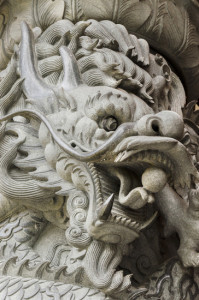 Folks are a bit stressed (angry, discouraged, frustrated, depressed, vitriolic, etc.) concerning an upcoming presidential election. Rather than rant, I thought I would write about three of the most salient things the Bible has to say about how a Christian should understand the government. This provides (for me, at least) needed perspective in the midst of non-stop round the clock election histrionics. So here we go. Three important things the Bible has to say RE Christians and the government.
Folks are a bit stressed (angry, discouraged, frustrated, depressed, vitriolic, etc.) concerning an upcoming presidential election. Rather than rant, I thought I would write about three of the most salient things the Bible has to say about how a Christian should understand the government. This provides (for me, at least) needed perspective in the midst of non-stop round the clock election histrionics. So here we go. Three important things the Bible has to say RE Christians and the government.
- The Purpose of Government is to Serve as an Agent of God for Good.
There is nothing wrong with government per se (though that feels like a tough sell right now!). God himself is a governor: he is the provident Ruler of the heavens and the earth, which is his handiwork. He created human beings to image him by ruling over the created order as his vice-regents (as is clear from the Creation Mandate in Genesis 1:27-28 and is so beautifully expressed in Psalm 8).
It is necessary for us humans to have order and structure for our society to function – God is not a God of disorder, but of order. He is not honored by anarchy. So, government is good by design. Two key texts state the positive case for the purpose of government:
Romans 13:1-7 Everyone must submit himself to the governing authorities, for there is no authority except that which God has established. The authorities that exist have been established by God. 2 Consequently, he who rebels against the authority is rebelling against what God has instituted, and those who do so will bring judgment on themselves. 3 For rulers hold no terror for those who do right, but for those who do wrong. Do you want to be free from fear of the one in authority? Then do what is right and he will commend you. 4 For he is God’s servant to do you good. But if you do wrong, be afraid, for he does not bear the sword for nothing. He is God’s servant, an agent of wrath to bring punishment on the wrongdoer. 5 Therefore, it is necessary to submit to the authorities, not only because of possible punishment but also because of conscience. 6 This is also why you pay taxes, for the authorities are God’s servants, who give their full time to governing. 7 Give everyone what you owe him: If you owe taxes, pay taxes; if revenue, then revenue; if respect, then respect; if honor, then honor.
1 Peter 2:13-17 13 Submit yourselves for the Lord’s sake to every authority instituted among men: whether to the king, as the supreme authority, 14 or to governors, who are sent by him to punish those who do wrong and to commend those who do right. 15 For it is God’s will that by doing good you should silence the ignorant talk of foolish men. 16 Live as free men, but do not use your freedom as a cover-up for evil; live as servants of God. 17 Show proper respect to everyone: Love the brotherhood of believers, fear God, honor the king.
Some summary lessons from these texts on the positive purpose of human government:
- God is sovereign over who rules. He raises up and appoints those who will rule and govern. This is true for his people, Israel, in the Old covenant; but it is equally true for all peoples in all times and all places. The apostle Paul tells us that “…there is no authority except that which God has established.” We might look around and think God is doing a pretty crummy job in his work of raising up the right sorts of leaders – but there are many reasons why God gives us the kinds of leaders we receive. Sometimes a wicked leader is given as a judgment upon a people that has lost its way, which should lead to some soul-searching and repentance (see Judges, or Kings). Often his ways are inscrutable (while at the same time all wise).
- As Christians we have a responsibility to be good citizens. We should submit to the authorities as a matter of conscience. We should pay our taxes. We should give honor and respect to those who hold office (not because of any inherent worthiness in the rulers themselves, but as a demonstration of respect to God). This is true not only for good and wise rulers, but also for foolish and godless ones.
- The purpose of government is good: to institute justice. Rulers “hold no terror for those who do right, but for those who do wrong.” Government, when justly exercised, is a force for positive good in a society – restraining evil and rewarding righteous behavior. For those who do rightly no fear of government is necessary, but for the wicked the king is “an agent of wrath to bring punishment on the wrongdoer.” Of course, this isn’t always our experience! Often rulers are unjust and corrupt – they might reward the wicked and punish the righteous! Keep in mind that Peter and Paul are describing the purpose of government here, not describing its actual application in their experience. Peter and Paul would both ultimately be executed under the cruel tyranny of the emperor Nero. This does nothing to offset the point however. Instead it serves to support point two below….
- The Practice of Government in this Fallen Order is Often to Serve as a Tool of Satan for Evil.
The Bible doesn’t offer us some sort of naïve view of government. Indeed, all the evils of government are on full display. Pharaoh orders that every baby boy born among the Hebrews be cast into the Nile River. Herod the Great orders the destruction of all boys two and under in the Slaughter of the Innocents. Ahab murders Naboth and steals his vineyard. David abuses his office to murder Uriah and steal his wife. The Bible has so many examples of bad government that no one could accuse it of Pollyannaish head-in-the-sand simplicity.
One of the things the Bible repeatedly emphasizes in many ways is the great evil that the state can pose when the levers of power are in the hands of the proud, selfish, and evil. In fact, the state (and its power used to oppose the purposes of God) is pictured as one of the greatest threats to God’s people in this life. One vital text here is Revelation 13:
 Revelation 13:1-9 And the dragon stood on the shore of the sea. And I saw a beast coming out of the sea. He had ten horns and seven heads, with ten crowns on his horns, and on each head a blasphemous name. 2 The beast I saw resembled a leopard, but had feet like those of a bear and a mouth like that of a lion. The dragon gave the beast his power and his throne and great authority. 3 One of the heads of the beast seemed to have had a fatal wound, but the fatal wound had been healed. The whole world was astonished and followed the beast. 4 Men worshiped the dragon because he had given authority to the beast, and they also worshiped the beast and asked, “Who is like the beast? Who can make war against him?” 5 The beast was given a mouth to utter proud words and blasphemies and to exercise his authority for forty-two months. 6 He opened his mouth to blaspheme God, and to slander his name and his dwelling place and those who live in heaven. 7 He was given power to make war against the saints and to conquer them. And he was given authority over every tribe, people, language and nation. 8 All inhabitants of the earth will worship the beast– all whose names have not been written in the book of life belonging to the Lamb that was slain from the creation of the world. 9 He who has an ear, let him hear.
Revelation 13:1-9 And the dragon stood on the shore of the sea. And I saw a beast coming out of the sea. He had ten horns and seven heads, with ten crowns on his horns, and on each head a blasphemous name. 2 The beast I saw resembled a leopard, but had feet like those of a bear and a mouth like that of a lion. The dragon gave the beast his power and his throne and great authority. 3 One of the heads of the beast seemed to have had a fatal wound, but the fatal wound had been healed. The whole world was astonished and followed the beast. 4 Men worshiped the dragon because he had given authority to the beast, and they also worshiped the beast and asked, “Who is like the beast? Who can make war against him?” 5 The beast was given a mouth to utter proud words and blasphemies and to exercise his authority for forty-two months. 6 He opened his mouth to blaspheme God, and to slander his name and his dwelling place and those who live in heaven. 7 He was given power to make war against the saints and to conquer them. And he was given authority over every tribe, people, language and nation. 8 All inhabitants of the earth will worship the beast– all whose names have not been written in the book of life belonging to the Lamb that was slain from the creation of the world. 9 He who has an ear, let him hear.
The Beast of Revelation is a terrifying image. He serves the Dragon (Satan) and he makes war against the saints (the church). He is a terrifying monstrosity who bends all of his great power to the destruction of God’s people. Who is the Beast and what does this have to do with a blog post on the government?
The Beast of Revelation is the government. More specifically, it is the power of the state being used as a tool of Satanic oppression to oppose the purposes of God through the destruction of the saints and their witness. Where does this understanding come from (Revelation 13 doesn’t even mention states, governments, kings, etc.)? Key to interpreting Revelation 13 is recognizing that this image is a re-setting of an Old Testament prophecy from the book of Daniel. In Daniel Chapter 7, the prophet is given a vision of four beasts coming up out of the sea (even as the beast in Revelation does).
Daniel 7:3-7 3 Four great beasts, each different from the others, came up out of the sea. 4 “The first was like a lion, and it had the wings of an eagle. I watched until its wings were torn off and it was lifted from the ground so that it stood on two feet like a man, and the heart of a man was given to it. 5 “And there before me was a second beast, which looked like a bear. It was raised up on one of its sides, and it had three ribs in its mouth between its teeth. It was told, ‘Get up and eat your fill of flesh!’ 6 “After that, I looked, and there before me was another beast, one that looked like a leopard. And on its back it had four wings like those of a bird. This beast had four heads, and it was given authority to rule. 7 “After that, in my vision at night I looked, and there before me was a fourth beast– terrifying and frightening and very powerful. It had large iron teeth; it crushed and devoured its victims and trampled underfoot whatever was left. It was different from all the former beasts, and it had ten horns.
 We are later given an interpretation of this disturbing image. Each of these beasts, Daniel is told, represents a kingdom (a state!). They will come in turn and will oppress God’s people. The lion represents the first of these kingdoms, Babylon. The second beast, a bear, represents the Medo-Persian empire which would overthrow the Babylonians and oppress Israel for the next 200 years. The third beast, a four-winged, four-headed leopard, represents another mighty state – Alexander the Great and his Macedonian-Greek Empire would dominate the land until the coming of the Romans 250 years later. The fourth and final beast represents the mighty (and oppressive to God’s people) empire of Rome.
We are later given an interpretation of this disturbing image. Each of these beasts, Daniel is told, represents a kingdom (a state!). They will come in turn and will oppress God’s people. The lion represents the first of these kingdoms, Babylon. The second beast, a bear, represents the Medo-Persian empire which would overthrow the Babylonians and oppress Israel for the next 200 years. The third beast, a four-winged, four-headed leopard, represents another mighty state – Alexander the Great and his Macedonian-Greek Empire would dominate the land until the coming of the Romans 250 years later. The fourth and final beast represents the mighty (and oppressive to God’s people) empire of Rome.
Revelation 13, then, is a re-casting of the beasts of Daniel. The Beast is an amalgamation of the four beasts of Daniel’s vision. The Beast is the power of state on steroids. It is the coercive power of government marshalled for the malevolent purpose of snuffing out the people and purposes of God. What are we supposed to do with this?
Recognize that while the purpose of government is good, the practice of government is often quite evil indeed. This is a strong argument against statism and in favor of limited government. Government is often twisted and perverted for Satanic purposes. The state is not a friend of faith, but is instead a long and bitter enemy. The people of God should not put their faith in the state for deliverance, but should instead expect persecution as the norm instead. Even when it seems a friend, there is a cost – Christendom is not all it’s cracked up to be. This brings us to the third and final point….
- We Should Trust in the Governance of God, Not Man
The earliest Christian creed was the simple statement, “Jesus is Lord.” This was viewed as fighting words in the context of the Roman Empire, where a required creed was the affirmation that “Caesar is Lord.” It is hardly surprising that the church faced persecution from its earliest days.
The confession “Jesus is Lord” is absolutely central to framing a Christian understanding of government. We don’t put our hopes in the power of the state. The state exists for the purpose of instituting justice, but it is often perverted to the practice of very great injustice. How should we as Christians respond to this?
We don’t put our trust in the state. We put our trust in our Lord. Sure, we serve as responsible citizens. In our context that means we prayerfully vote our conscience. We submit to the government as unto the Lord as a matter of conscience (unless commanded to do something contrary to God’s commandments). We give respect, honor, taxes to whom they are due. But we trust in the Lord alone.
When the Israelites were delivered from Egypt, they found themselves freed from 400 years of the shackles of a wicked and tyrannical government. No more would tired backs feel the whip’s lash in obedience to Pharaoh’s brutal decree for “bricks without straw.” No more would a Hebrew mother weep beside the empty cradle where her son slept in a warm bundle a few minutes before. They would be free under the just and wise government of God.
As they made their way out of the waters of the Red Sea, as they heard the cries of their vanquished foes drowned out by the returning walls of water, they were filled with joy. And they sang a spontaneously composed song of praise (complete with dancing and tambourines):
 Exodus 15:1-5 Then Moses and the Israelites sang this song to the LORD: “I will sing to the LORD, for he is highly exalted. The horse and its rider he has hurled into the sea. 2 The LORD is my strength and my song; he has become my salvation. He is my God, and I will praise him, my father’s God, and I will exalt him. 3 The LORD is a warrior; the LORD is his name. 4 Pharaoh’s chariots and his army he has hurled into the sea. The best of Pharaoh’s officers are drowned in the Red Sea. 5 The deep waters have covered them; they sank to the depths like a stone.”
Exodus 15:1-5 Then Moses and the Israelites sang this song to the LORD: “I will sing to the LORD, for he is highly exalted. The horse and its rider he has hurled into the sea. 2 The LORD is my strength and my song; he has become my salvation. He is my God, and I will praise him, my father’s God, and I will exalt him. 3 The LORD is a warrior; the LORD is his name. 4 Pharaoh’s chariots and his army he has hurled into the sea. The best of Pharaoh’s officers are drowned in the Red Sea. 5 The deep waters have covered them; they sank to the depths like a stone.”
Pharaoh trusted in his position, in his power, in his chariots. The Israelites were powerless before the Beast. Yet they trusted in the Lord. And the Lord vanquished Pharaoh. All they had was the Lord as their Lord, which is just where they ultimately needed to be. The song of Miriam was reframed in the twentieth psalm this way:
Psalm 20:7 7 Some trust in chariots and some in horses, but we trust in the name of the LORD our God.
And this should be our cry. Some may trust in governments, in states, in elections, in parliaments, in plebiscites, but….we will trust in the name of the Lord. We expect, at the end of the day, even in benevolent nations, that the state will show itself to be the Beast. So we trust it not. We trust the Lord. Looking to the just government of God, and the coming of our Lord’s return when “at the name of Jesus every knee should bow, in heaven and on earth and under the earth, 11 and every tongue confess that Jesus Christ is Lord, to the glory of God the Father.” (Philippians 2:10-11).
The fruit of this kind of trust is peace, no matter who wins an election. It sounds trite, but it’s true: no matter who wins in November, the King is on the throne. Jesus is Lord. Trust in him.